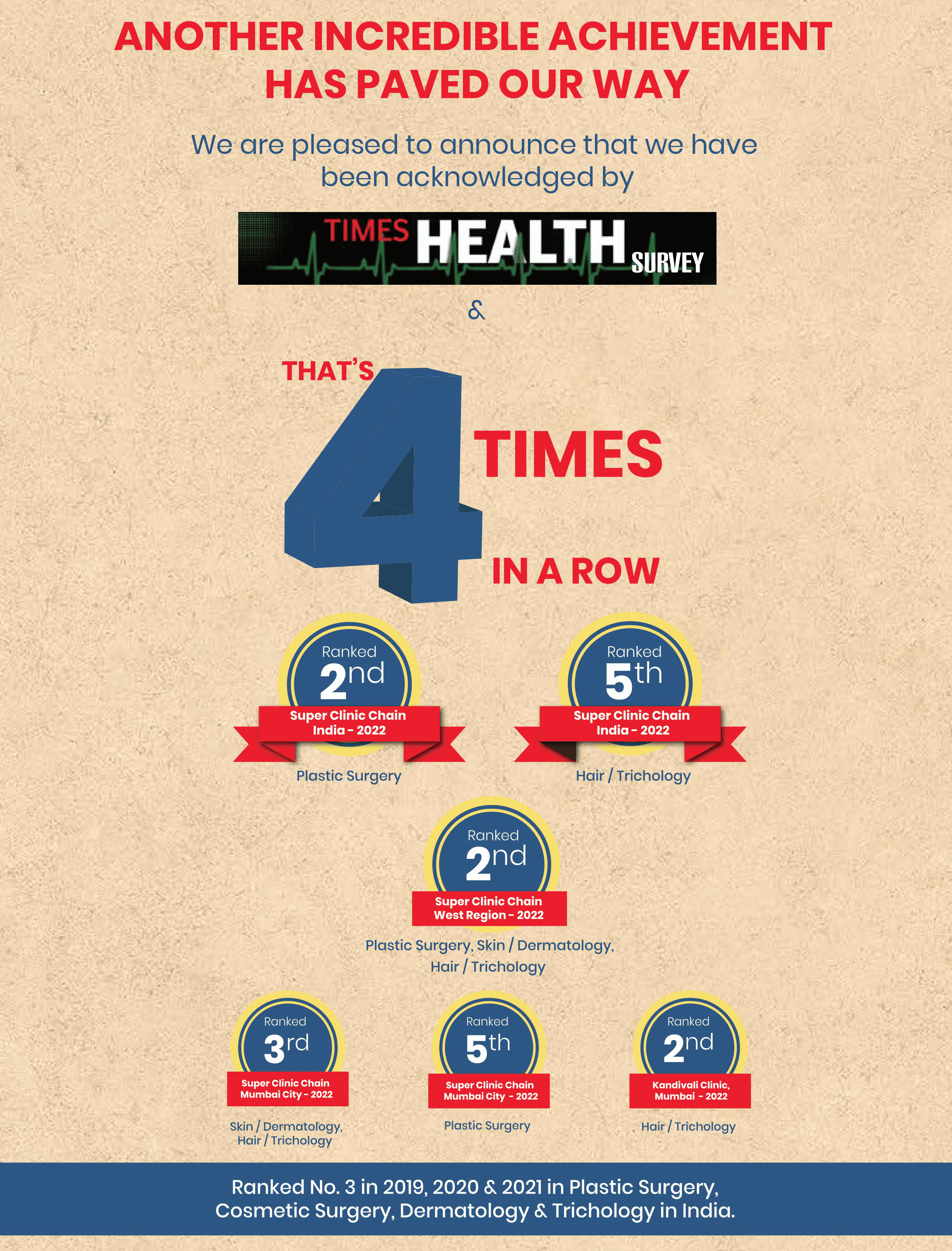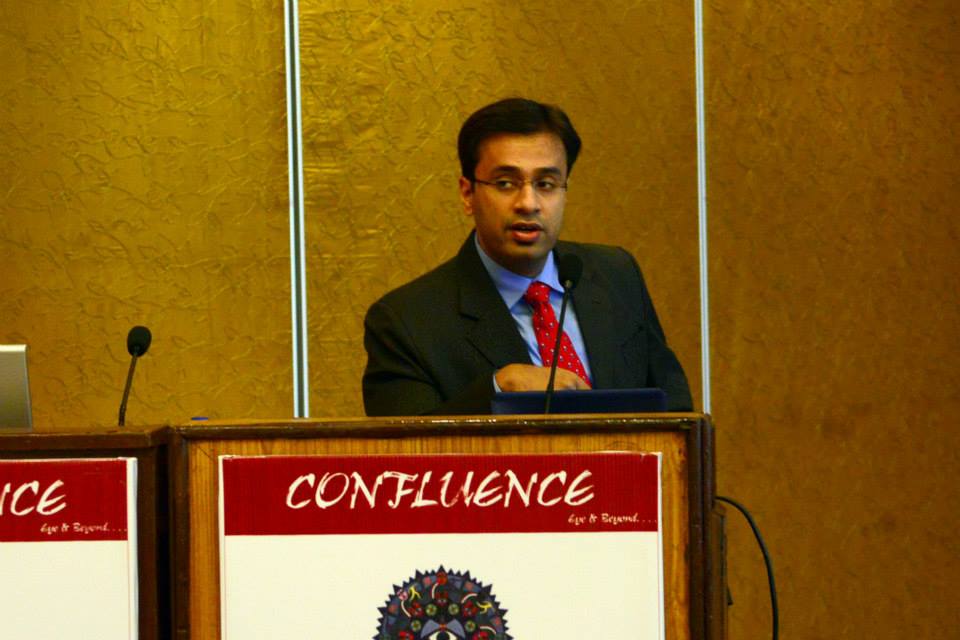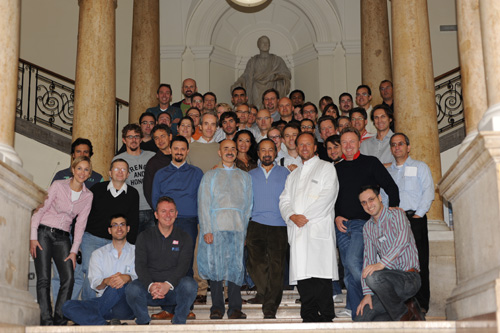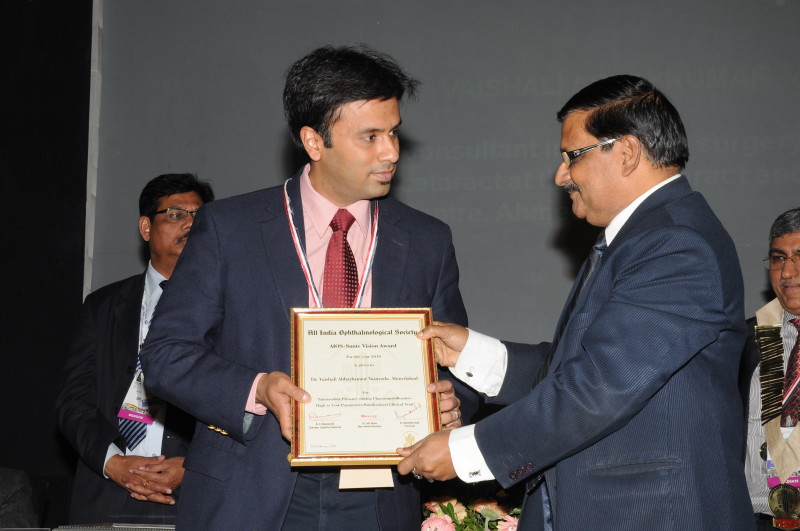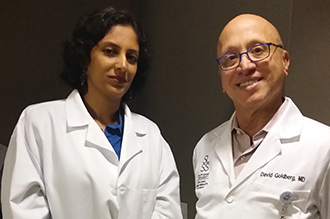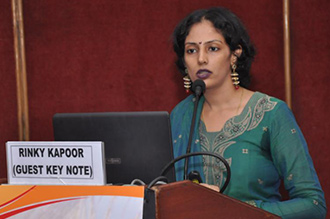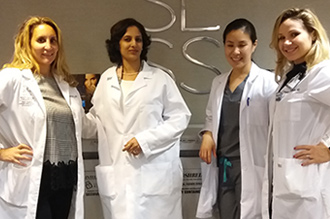The expansion of tissue and swelling in the orbit behind the eye is not generally severe enough to damage the optic nerve. This is mostly the result of disease caused by thyroid issues. However, the enlargement might cause striking proptosis in a patient. It can become a distressing situation, not only from exposure of the eye but also because of the eye shape disfigurement occurrence. Such a condition would require a prompt diagnosis and suitable treatment after consulting at our clinics in India.
Orbital decompression surgery by expert plastic surgeons often can improve proptosis by enlarging the eye socket or the orbit of the eye to accommodate enlarged, swollen fat and muscle tissues. The condition would allow the eye to not form bulge and settle back into the eye socket in a more comfortable position. The consistency and amount of swelling, fat, and muscle vary from patient to patient impacting the degree of decompression achieved by wall decompression surgery in India. Individuals with thicker fat may not experience as much wall decompression effect as those with larger amounts of fluid-like fat tissue.
Two wall decompression surgery involves surgical removal of two walls of the orbit to give more space to the protruding eye of a patient. The top cosmetic surgeon would perform the surgery by avoiding the orbital floor side of the four walls in mild cases. Doing so can decrease the chances of double vision risk after the two-wall decompression surgery. Two-wall decompression surgery is a major surgical procedure, requiring the best hands to operate a clinic nearby. The small size of the incision in the eyes might make the patient consider it as a minor operation.
Two walls or balanced decompression surgery would require admission to a clinic or hospital for a night and a general anaesthetic for the patient. The surgery oftentimes takes around 2-3 hours to perform by our best cosmetic surgeons at The Esthetic Clinics. Patients might experience swelling, bruising, and some discomfort following the two-wall decompression surgery. The patient would have to take leave from their regular daily routine work for a while. In rare cases, patients might have to leave their work for longer if the double vision after-effects are troublesome.
The doctor would put a drain over the eyes to diminish swelling effects. The surgical dressing and the drain are normally removed before their discharge from the hospital. Following day the patients can return home, but, they would need someone else to drive them back. Patients often can resume their daily activities like showering, washing, walking, etc. after their two wall decompression surgery at our clinics in Mumbai. However, the patient should avoid any strenuous activity or exercise for at least two weeks after the surgery.
Patients with mild to moderate effects of thyroid-related eye diseases can develop enlarged eye muscles. The swelling and enlargement of muscles do not let the eyes sit comfortably in the orbit, making the eye protrude or bulge outwards. This can result in several eye-related problems and the potential risk of losing eyesight because of the additional pressure. Therefore, the need for corrective decompression arises for such conditions.
Wall decompression allows the eye to have more space to comfortably sit in the orbit. The patient should discuss with their doctor about their possible options of treatment for their eye conditions. After the two wall decompression surgery of the eye orbit’s walls, the eye of a patient tends to settle back to a slightly downward position. Which is why the patient needs to address their concern by discussing them with an expert cosmetic surgeon to present all suitable option of treatments.
One wall decompression surgery is done when the proptosis is minor or very mild. Removal of one side of the orbit walls, lateral or median, can help the enlarged eye to have more space. One wall decompression would require the patient to get admission to the hospital for the 2-2.5 hour surgery. Most of the patients can return home after spending one night at the hospital for one wall decompression surgery in India.
Balanced or two-wall decompression is done for eye muscle enlargement caused by mild thyroid eye diseases. This involves the removal of lateral and medial walls of the eye orbit. The patient often is required to get hospitalized for the surgery lasting for around three hours by our best plastic surgeon in India. The surgery can have specific risks including Epistaxis or nose bleed and double vision among other common two-wall decompression surgery risks and complications.
Full or three wall decompression surgery in India includes the removal of three sides of lateral and medial walls along with the orbital floor of the eye. This surgery is usually reserved for severe degrees of proptosis in patients. The patient often has to get hospitalized for a day for the surgery or more depending on the severity of the case. The recovery time might be larger than other milder wall decompression surgery cases. The patient might experience numbness in the upper cheeks and upper teeth. Significant lower lid swelling is also seen in most cases.
In some patients undergoing wall decompression surgery, they might already be experiencing some degree of double vision. However, others might experience worse double vision after-effects of the surgery. Normally, wall decompression does not always adversely change the pattern of double vision. Patients with severe muscle enlargement are more at risk of worsening double vision after two-wall decompression surgery. Treatment of double vision occurrence may require expert intervention.
The most crucial factor in two wall decompression surgery is the degree of stiffness of built-up tissue behind the eyes. Bone wall removal is an important factor but the stiffness of the tissue behind the eye can alter the effect of the surgery. Most of the patients are seen with softer fatty tissue which would easily expand in the cavity of the orbit. With stiff fat tissues, the effect of the two wall decompression surgery might be lesser than expected. Doctors cannot always predict before surgery what might be the consistency of the orbital tissue. Generally, patients with otherwise good eye movement often have softer tissue built up behind the eyes.
Most of the cases of thyroid-related eye disease would have some asymmetry in their eye position before surgery. The eyes might be in protrusion or proptosis condition before the two wall decompression surgery. Patients sometimes have to go through surgical adjustment of the lower or upper eyelids, if significant differences are remaining after the surgery. However, tissue healing differs from patient to patient and can vary in results after the surgery.
The sensory nerve, inside the orbit floor muscles, is responsible for feeling in the upper lip and gum as well as inside the cheeks. Two wall decompression surgery after-effects can include numbness in these areas. This might not be a significant problem but it can become irritating after some time. However, the sensation in upper cheekbones and teeth usually resolves in 3-6 months.
Two-wall decompression surgery is done in a vascular area that has a large number of blood vessels. Therefore, the patient undergoing two wall decompression surgery mustn't take any blood-thinning medication or any medication that would hinder normal blood clotting.
Even with adequate precautions taken before the surgery, some patients may experience significant bruising and swelling in the eyes, particularly if marked proptosis was present preoperatively. Severe bruising and swelling in the eye and surrounding area can cause additional scar tissue to form. Excessive bleeding and severe swelling after the two wall decompression surgery could conceivably result in vision loss.
Surgery around the eye, especially in the orbital area behind the eye, has a risk of partial or severe blindness. Bleeding or injury to a critical blood vessel or nerve during the two wall decompression surgery may cause unexpected vision loss.
Any eye disease and its treatments in India are very complicated and sensitive, which is why patients need to understand as much as possible about their disease. Dr. Debraj Shome is vastly experienced in the fields of cosmetic surgery and reconstructive surgical treatments.
Our experts at The Esthetic Clinics in Mumbai recommend that every patient should review and gather all information provided by a trusted website, discuss their disease with their primary care physician and seek additional specialized resources for their specific problem or concern. Dr. Debraj Shome and his team would go out of their way to help a patient decide and understand much more about their condition and diseases. Informed decision-making can become beneficial for an early diagnosis and treatment in time. Therefore, patients feel better about their disease and the variety of available treatment options like two wall decompression surgery at our clinics in Mumbai.


Dr. Debraj Shome is Director and Co founder of The Esthetic Clinics. He has been rated amongst the top surgeons in India by multiple agencies. The Esthetic Clinics patients include many international and national celebrities who prefer to opt for facial cosmetic surgery and facial plastic surgery in Mumbai because The Esthetic Clinics has its headquarters there.
